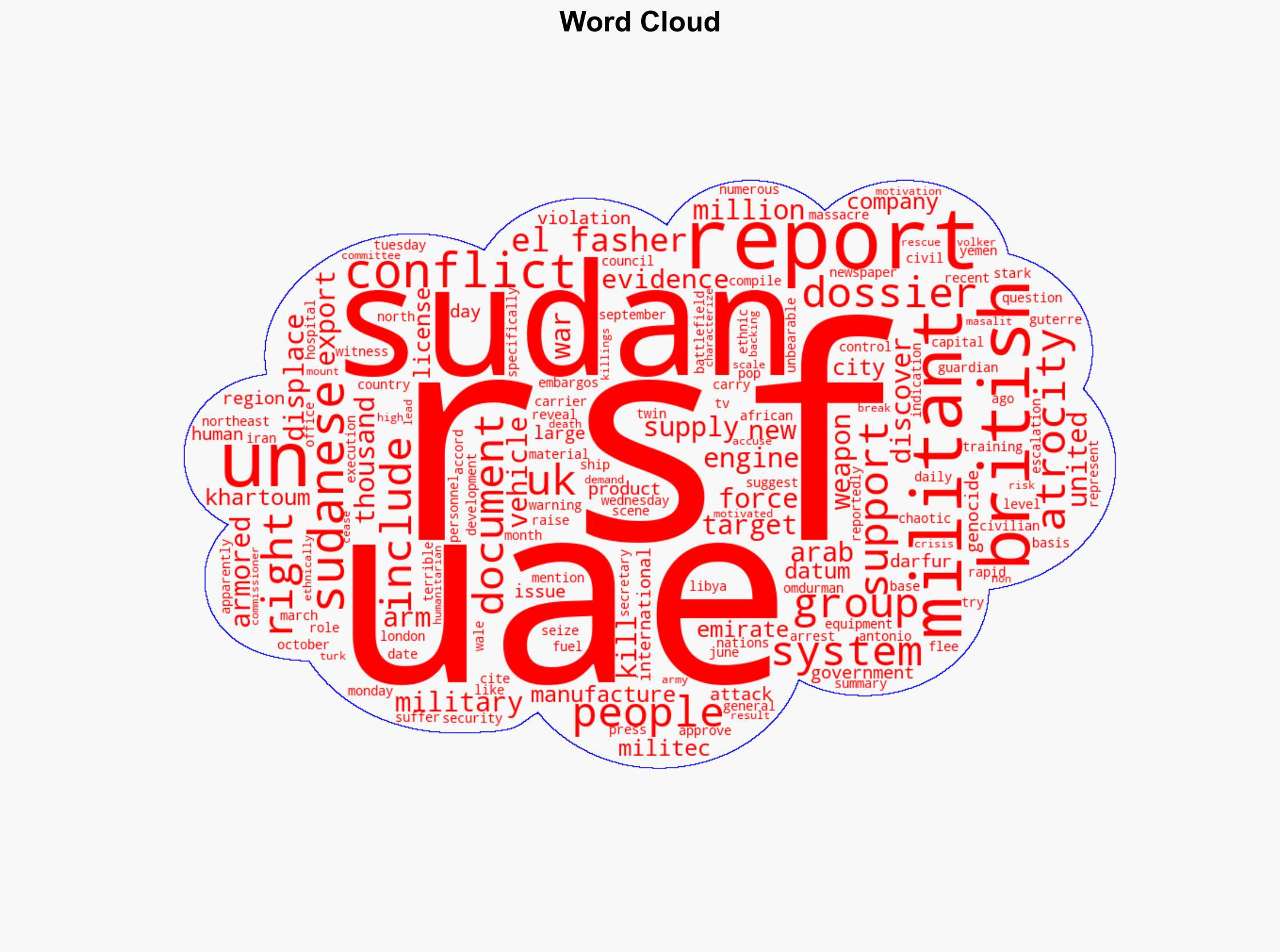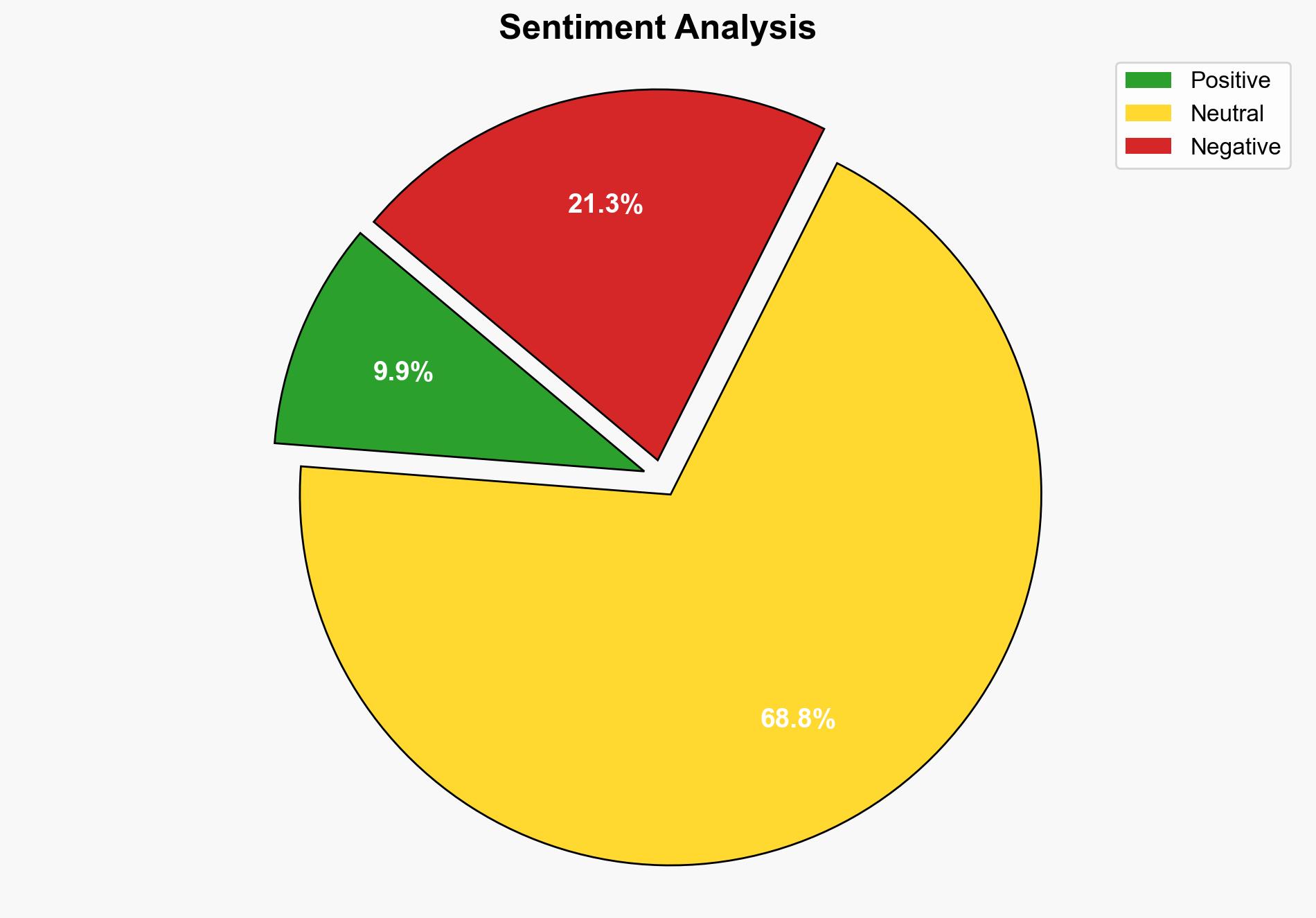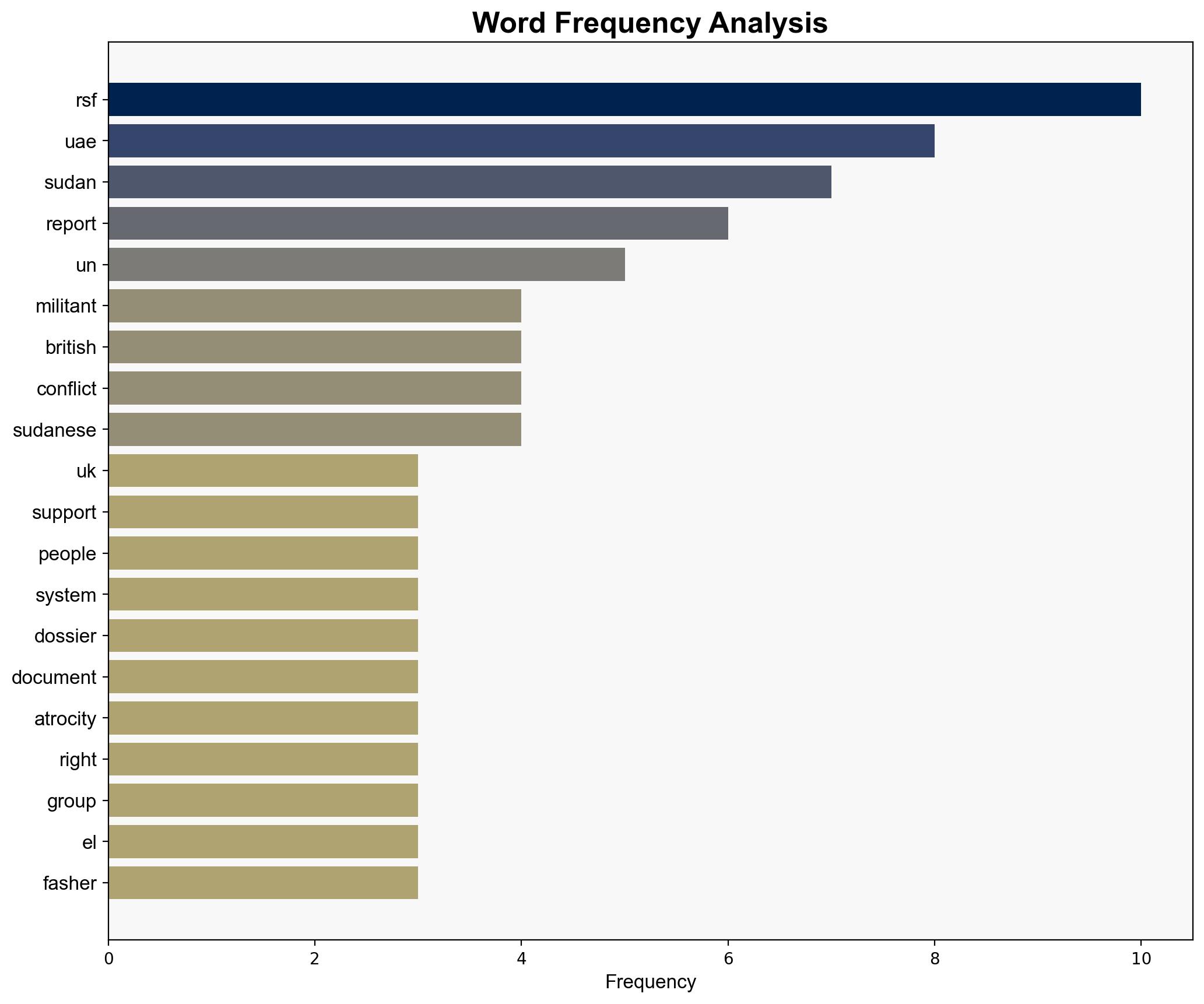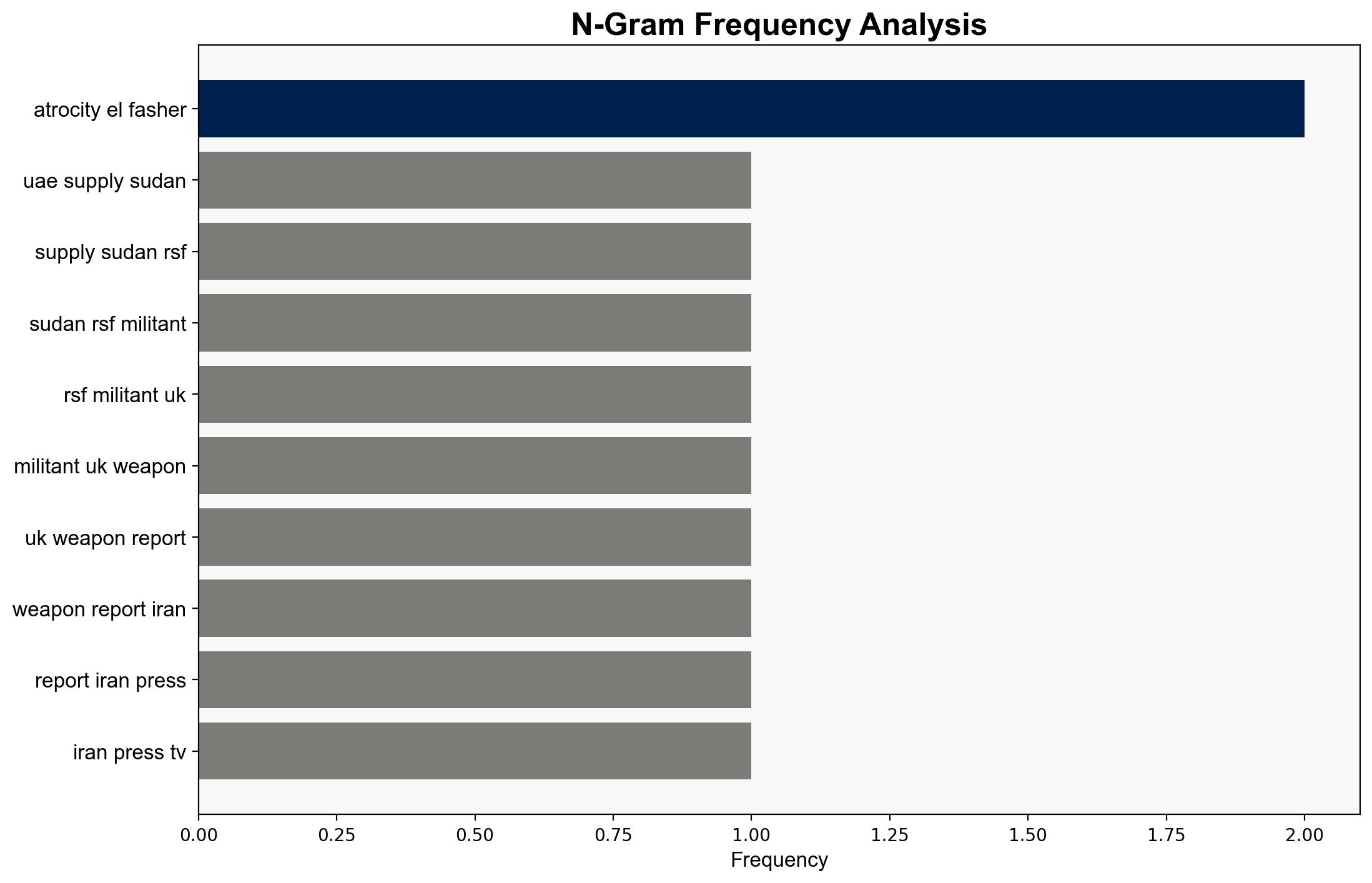UAE supplied Sudan’s RSF militants with UK-made weapons Report – Globalsecurity.org
Published on: 2025-10-30
Intelligence Report: UAE supplied Sudan’s RSF militants with UK-made weapons Report – Globalsecurity.org
1. BLUF (Bottom Line Up Front)
The most supported hypothesis is that the UAE has been supplying the Rapid Support Forces (RSF) in Sudan with UK-made weapons, potentially exacerbating the conflict in the region. This assessment is made with moderate confidence due to the presence of documented evidence and reports from credible sources. It is recommended that international diplomatic pressure be applied to both the UAE and the UK to address and halt these arms transfers, while also enhancing monitoring mechanisms for arms embargo compliance.
2. Competing Hypotheses
1. **Hypothesis A**: The UAE is knowingly supplying the RSF with UK-made weapons, contributing to the conflict in Sudan. This is supported by evidence of UK-manufactured military equipment found in RSF-controlled areas and reports citing a UN Security Council dossier.
2. **Hypothesis B**: The presence of UK-made weapons with the RSF is due to unauthorized transfers or black-market activities, without direct involvement or knowledge of the UAE government. This could be supported by the complex nature of arms trading and the possibility of diversion from intended recipients.
3. Key Assumptions and Red Flags
– **Assumptions**: Hypothesis A assumes direct UAE involvement and intent to support the RSF, while Hypothesis B assumes a lack of oversight in arms distribution.
– **Red Flags**: The reliance on a single dossier and media reports could indicate potential bias or incomplete information. The absence of direct statements from the UAE or UK governments addressing these allegations is notable.
– **Blind Spots**: The report does not explore the full supply chain of the weapons, leaving gaps in understanding how they reached the RSF.
4. Implications and Strategic Risks
The continued supply of weapons to the RSF could lead to further destabilization in Sudan, increasing regional insecurity and humanitarian crises. This situation risks escalating into broader geopolitical tensions, particularly if international actors are perceived as complicit. The potential for ethnic violence and human rights violations poses significant moral and strategic challenges.
5. Recommendations and Outlook
- Engage in diplomatic efforts to pressure the UAE and UK to investigate and halt arms transfers to conflict zones.
- Enhance monitoring and enforcement of UN arms embargoes, possibly through increased international cooperation and intelligence sharing.
- Scenario Projections:
- **Best Case**: Successful diplomatic intervention leads to cessation of arms supplies and de-escalation of the conflict.
- **Worst Case**: Continued arms flow exacerbates the conflict, leading to regional instability and increased international involvement.
- **Most Likely**: Partial compliance with international pressure, with some reduction in arms flow but ongoing conflict due to entrenched interests.
6. Key Individuals and Entities
– **Militec**: UK-based company allegedly involved in manufacturing the weapon systems found in Sudan.
– **Antonio Guterres**: UN Secretary-General, involved in addressing the humanitarian crisis.
– **Volker Turk**: UN High Commissioner for Human Rights, highlighting the risk of ethnic violence.
7. Thematic Tags
national security threats, arms trafficking, regional conflict, humanitarian crisis




